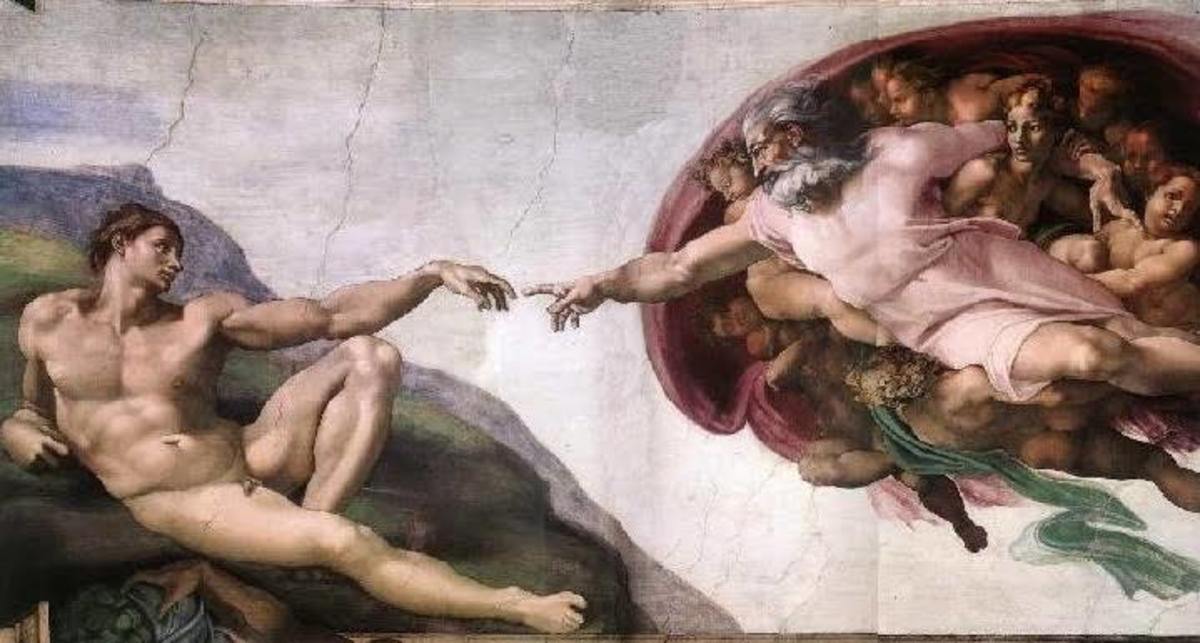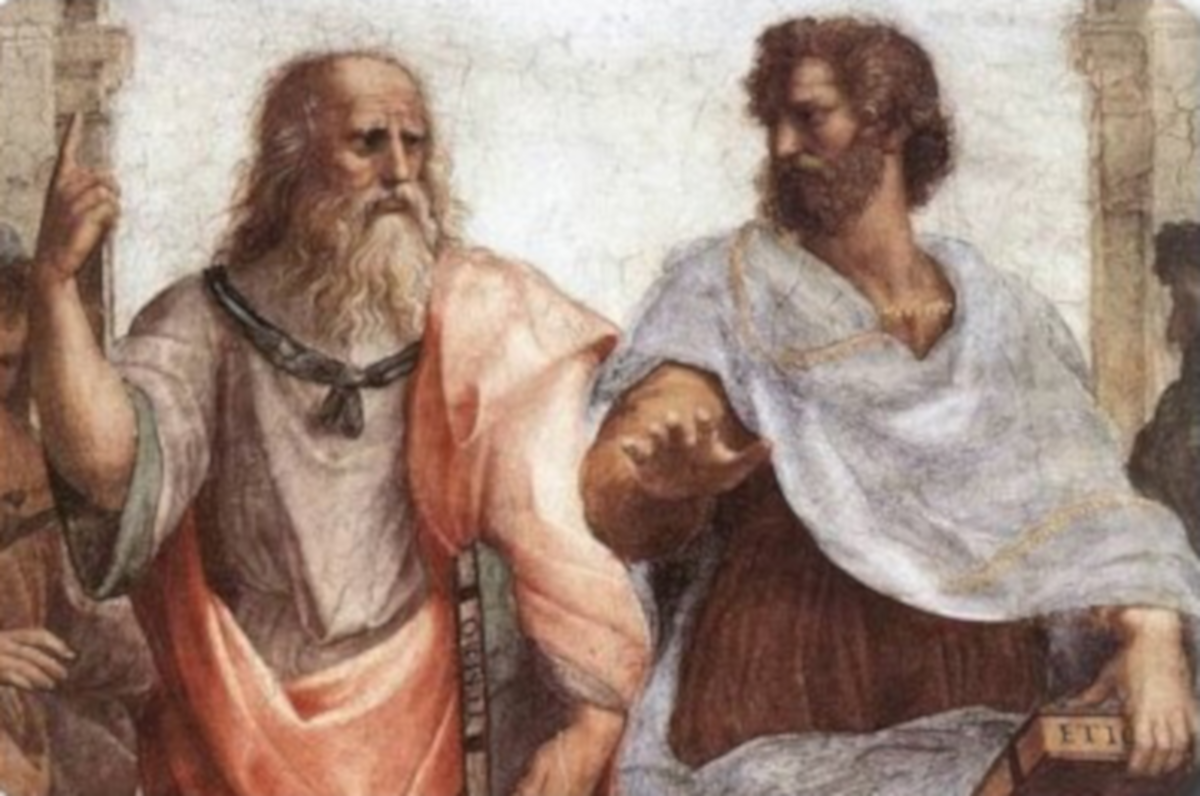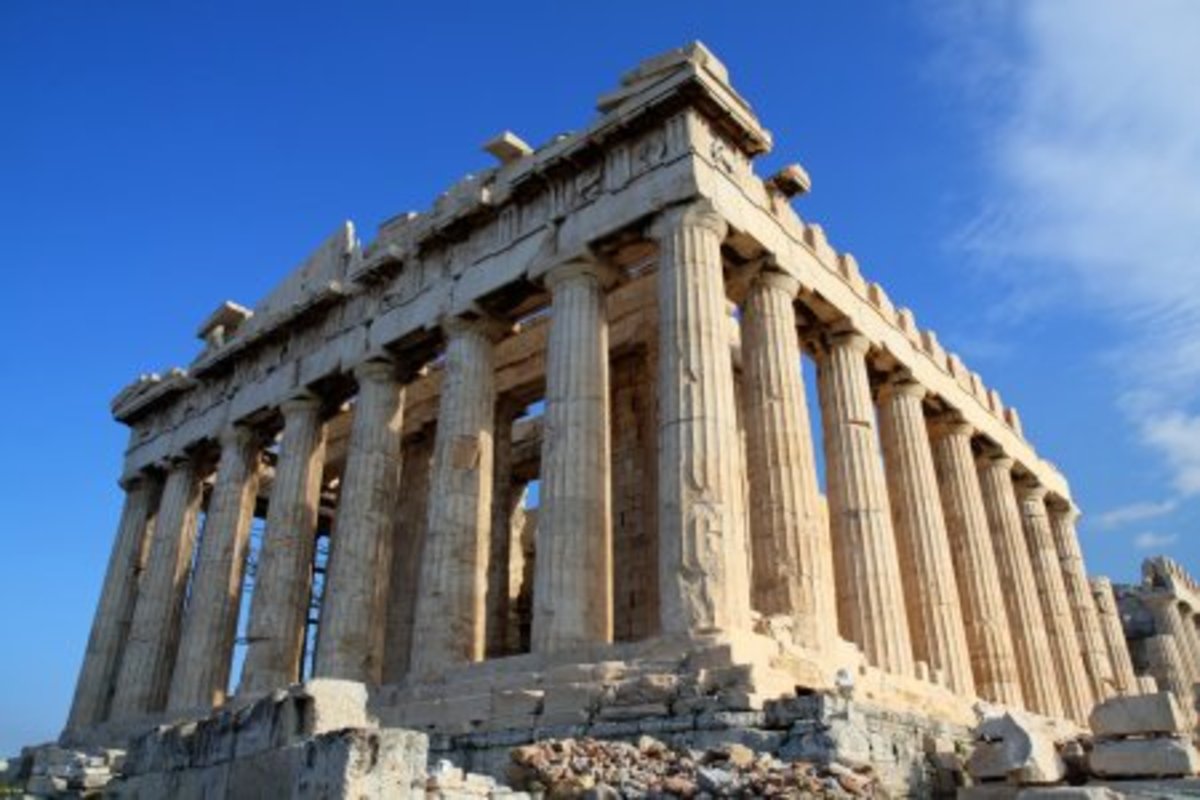A Catholic Philosophy of Education: Locating God and Humanity in the Educative Process
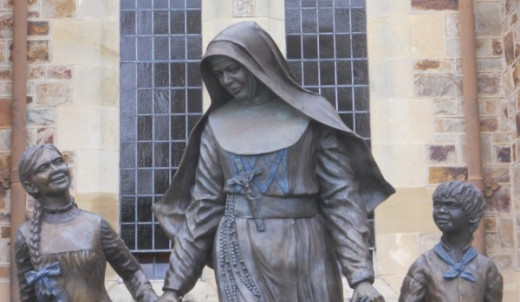
Overview
The primary purpose of this article is to discuss the affirmative existence of a recognisably Catholic philosophy of education and, having done so, to identify the main characteristics of that philosophy.
Such a philosophy understands humanity as inherently connected to the divine through the Incarnation of Jesus Christ. It also recognises the value of knowledge as used to develop the potentialities of the whole human person in preparation for Catholic life, and necessarily reflects the principles of the Catholic philosophy of life.
This philosophy apprehends the human person in light of supernatural truths bestowed upon humanity by God. It also produces a process of education in which the role of the teacher is paramount, and which not only concentrates on the proper Catholic functioning of the student in this life but also in the hereafter. The ultimate aim of Catholic education is thus interpreted as the attainment of eternal salvation and happiness in the presence of God.
What is a Philosophy of Education?
In order for one to produce an informed and comprehensive understanding of any particular philosophy of education, it is imperative to first establish an appreciation of the general conceptions of both education and the discipline of philosophy of education.
Education, broadly defined, can be understood in two ways:
1) Any activity or encounter which produces a determining effect on the intellect, disposition, and corporal aptitude of an individual.
2) A process by which society deliberately communicates its collected knowledge, skills and values from generation to generation.
From these definitions, it is clear that the express purpose of education is understood as being the development of an individual’s knowledge, skills, and character. The way in which education is conceived has a determinative influence on the methods by which this development is approached, guided, and fulfilled.
The general conception of a philosophy of education is also twofold:
1) The discipline by which the problems, aims, methods, and outcomes of education are identified and studied through the application of objective philosophical methodology and criteria to the field of education.
2) A structure and view of education as based on particular values and perceptions. A good example of this is the contrast between the market model of education[1] and that promoted by such philosophers as Plato and Vico[2].
[1] Where the emphasis is expressly on the individual in light of the economic well-being of the State. Here, education is understood as developing the individual in order that they are competently equipped with the skills needed to understand how they are to vocationally contribute to the social economy, and to proficiently function within that vocation.
[2] Where the emphasis is on the development of the individual in their role as an individual. Here, education is understood as focusing primarily on the development of the individual so as to achieve their own personal potential, rather than on the economic potential of the State.
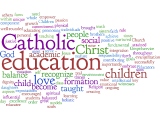
Does a Catholic Theology of Education Exist?
There is good evidence to suggest a positive response to the question regarding a specifically and identifiably Catholic educative philosophy. Such a philosophy is clearly distinguished by two elements:
1) It is understood as beginning and ultimately ending in God and Christ.
2) It is regarded as engendering a particular conception of the human person and their role in both the society of this world and their relationship with the Divine.
In reaching a definite conclusion on the matter, it is helpful to compare the understandings of certain educational truths as held by several philosophies of education:
1) Imparted values and perceptions
A philosophy regarding the nature of education is largely determined by what values and perceptions are held and imparted to the student. This is identified as the ‘logical bond’[1]. In this sense it is somewhat difficult to determine a Catholic philosophy of the educative process from ‘secular’ philosophies. For example, the liberal-democratic emphases on truth and respect for the individuality and social capacity of others, and the interest in justice central to the view of the Marxist are subsumed within the Catholic agenda. Central to this aspect of educative philosophy however is the understanding of the nature of the human person and their proper development. It is here that we can make our first concrete distinction in favour of an identifiable Catholic philosophy. Central to the Catholic view is the understanding of the human person as inherently connected to the Divine, and through this also to others. It is this core truth of the human person as originating in, directed towards, and ultimately ending in God and Christ which determines how Catholics view the nature of education and how the educative process is encountered thereby.
2) Acquisition of knowledge
Another central aspect of a philosophy of education is the conception of the acquisition of knowledge. This includes its nature and function within education for the development of the human person. On this point, we shall draw a comparison between the Catholic and market models. The market model conceives of knowledge as information ‘capital’, to be acquired much like money and to be used to secure the economic interests of the State. Education when viewed in light of this notion of knowledge functions as a process of the development of human ‘resources’ and the role of the teacher therein is rendered little more than a passive participant in the transmission of knowledge. The Catholic philosophy however, understands knowledge as used to develop the potentialities of the whole human person, in order that their character may mature into the best example of a Catholic individual - into the best impression of Christ[2]. According to this understanding, education is viewed as a process of humanisation and a preparation for Catholic life, both individually and socially, with the teacher holding a vital role in guidance and leadership.
3) Philosophy of life
Perhaps the most fundamental characteristic of any philosophy of education is that such a philosophy is by necessity determined by a particular philosophy of life. The reason for this is that any educative philosophy asserts the basic facts of a particular life philosophy. As education is the transmission of the accumulated knowledge of a particular society, those elements of the social tradition viewed as indispensable for the next generation, the dominant characteristics of any civilisation, will be reflected in its educative system[3]. It is such that the underlying philosophy of life is reflected in that of education. For example, the Kantian philosophy of education pays tribute to his conception of the categorical imperative, with education viewed from the perspective of ethical duty. As such, the Catholic philosophy of education pays tribute to the specifically Catholic apprehension of God and Christ, as determined by Church doctrine.
[1] J.D Redden, A Catholic Philosophy of Education, Bruce Publishing Company, Milwaukee, 1956, p.18.
[2] F.P Carroll, ‘A Bishop’s View’ in J.T.C. Brassil and B.M. Daffey (eds.), The Catholic School in a Pluralist Society, Melbourne Catholic Education Office, Melbourne, 1971, p.38.
[3] Redden, p. 15.
Dominant Characteristics of a Catholic Philosophy of Education
A philosophy of education necessarily reflects a particular philosophy of life. It is thus helpful to outline some Catholic principles of life which have their reflection in the formulation of a Catholic philosophy of education:
1) The universe was created by the supernatural power of God and is henceforth presided over by his providence.
2) Humanity was created by this creator God with a dual nature composed of body and soul and for a dual purpose of serving him here on earth and achieving eternal happiness with him in the hereafter[1].
3) Each and every human being is accountable for their own conduct as a consequence of the enjoyment of free will and conscience.
4) Humankind has received from God the capacity to discern truths in both the natural and supernatural order[2].
5) Every human being lives under the corollary of original sin, which has deep effects on the nature of humankind to learn and act rightly.
6) Human individuals are by necessity both social and moral beings who are held to obligations for the betterment of society and are in turn affected by their society.
The papal encyclical Divini Illius Magistri (1939) understood these principles to mean that Christian religion was an integral part of proper education. Consequently, the Church holds a pre-eminent role in the development of the human person. Education without these principles was rendered utterly ineffective and fraudulent. However, the more recent Vatican document The Catholic School (1977) published by the Congregation for Catholic Education reinterprets the Church position as understanding education and learning institutions as integral elements of the Church’s plan of guiding human beings to ultimate salvation.
The whole Catholic concept of education is underpinned by an understanding of the human person which is garnered from not only natural reason, but also supernatural truths received from God. Such supernatural truths include:
1) Humanity as created by God in his image.
2) The natural human condition as negatively affected by original sin, which renders the will and intellect of the human individual as less effective at seeking and attaining goodness and truth.
3) Every human person as having a principal final destiny of revering and serving God in order to achieve the reward of eternal delight in his presence.
Catholic education is thereby based on human nature in light of the salvific history of humankind centered in the Incarnation of Jesus Christ, and ultimately aims at the achievement of definitive salvation of the student. This particular aim is partnered with the objective of developing the complete Christian life of a baptised individual. Such an individual is socially and spiritually obligated to contribute to the attainment of the common good in both their immediate Christian community and the human community at large[3]. It is thus that Catholic education is understood as a social and moral activity, which seeks to develop the proper person in the here and now. It is distinguished by other apprehensions of education by its equal emphasis on such a person in the hereafter.
When combined with the principle of Catholic universalism, this far-reaching interpretation of education renders the educative process as encompassing the development of both the temporal and spiritual powers of the individual. In other words, the development of the whole human person. According to this principle of universalism, education is understood as imparting recognition of the necessary relationships between the Creator and the created, and the individual and social orders[4]. As an essential element of teaching students about these relationships, education also imparts the acknowledgement of the rights and obligations pertinent to every human person to themselves, their family, the Church, the State, and ultimately to God. As part of these rights and obligations, the human individual through proper education is connected to the past, compelled to ameliorate the problems of the present, and is developed in character in order to promote the common good in the future[5].
In light of such an apprehension of education, the role of the teacher is given a pivotal position. In guiding the development of the student, the teacher examples the best possible leadership and creates the most positive environment for them to develop their fullest capabilities. This is important in order that they may overcome the negative effects of original sin as far as they are able, and fulfil their fundamental obligations toward the individual and common good. It is thus that the teacher is charged with the necessary responsibility of bringing the student to ‘perfection’. They are viewed as responsible for developing the character of the student so that they will be open to both the needs of their fellow man and the grace of God, which enables humanity to recognise the opportunity of ultimate salvation.
[1] Redden, p.6.
[2] Redden, p.7.
[3] Carrol, p.37.
[4] Redden, p.10.
[5] Redden, pp.9-10.
References
- Arnott, F.R, ‘The Role of the Catholic School as Seen From the Outside’ in J.T.C Brassil & B.M Daffey (eds.), The Catholic School in a Pluralist Society, Melbourne Catholic Education Office, Melbourne, 1971, pp.117-123.
- Barrow, R & R. Woods, An Introduction to Philosophy of Education, 2nd edn, Methuen, London, 1982.
- Carrol, F.P, ‘A Bishop’s View’ in J.T.C Brassil & B.M Daffey (eds.), The Catholic School in a Pluralist Society, Melbourne Catholic Education Office, Melbourne, 1971, pp. 35-52.
- Charles S.J & D. Maclaren, The Social Teaching of Vatican II: Its Origin and Development, Plater Publications, Oxford, 1982.
- Hallinan, M.T, ‘Catholic Education at the Crossroads’ in J. Youniss & J.J Convey (eds), Catholic Schools at the Crossroads: Survival and Transformation, Teachers College Press, New York, 2000, pp.201-220.
- Levinson, M & S. Levinson, ‘Getting Religion: Religion, Diversity, and Community in Public and Private Schools’, in R. Curren (ed), Philosophy of Education: An Anthology, Blackwell Publishing, Oxford, 2007, pp.283-289.
- Matthews, G.B, ‘The Educational Thought of Augustine’ in R. Curren (ed), A Companion to the Philosophy of Education, Blackwell Publishing, Oxford, 2003, pp.50-61.
- Moran, G, ‘Religious Education’ in R. Curren (ed), A Companion to the Philosophy of Education, Blackwell Publishing, Oxford, 2003, pp.332-341.
- Noddings, N, Philosophy of Education, 3rd edn, Westview Press, Colorado, 2012.
- Palmer, P.J, To Know as We are Known, HarperCollins Publishers, San Francisco, 1983.
- Sheehan, P.J, ‘A Philosopher’s View’ in J.T.C Brassil & B.M Daffey (eds.), The Catholic School in a Pluralist Society, Melbourne Catholic Education Office, Melbourne, 1971, pp. 53-63.


